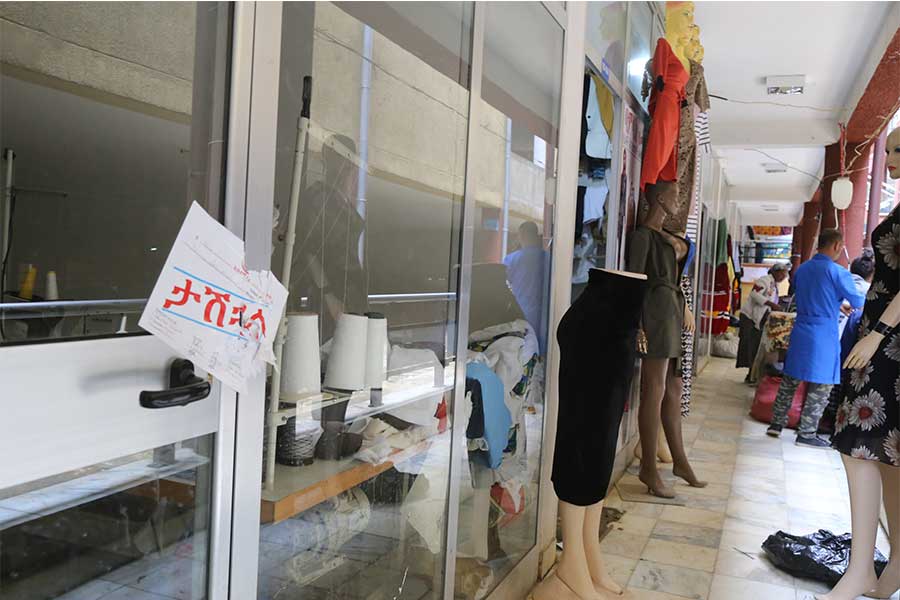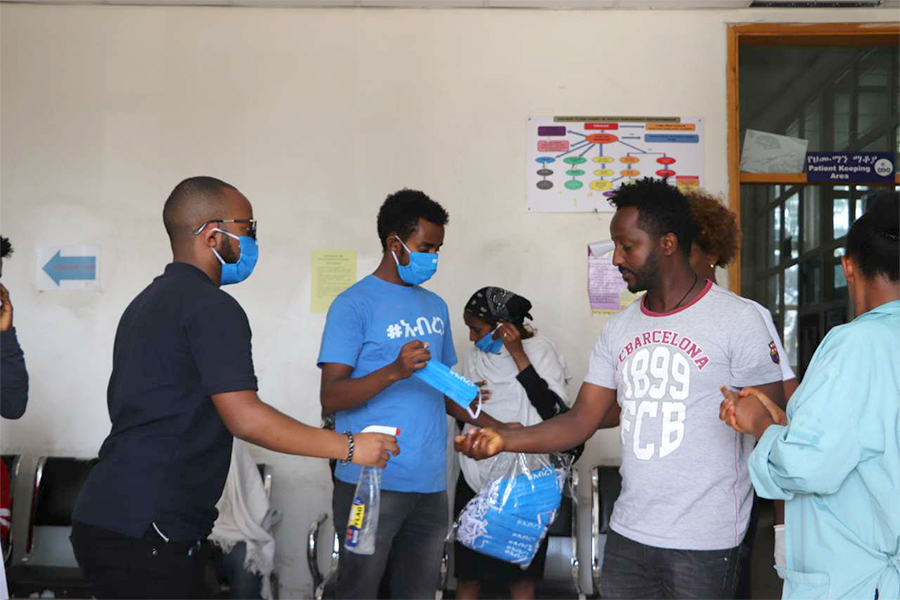
Featured | Sep 28,2019
Apr 16 , 2022
Antimicrobial resistance is complicating the management of many infectious diseases in humans and animals. Collective action needs to be taken in fighting it and keeping the available antimicrobials working for as long as possible to buy time for new discoveries, writes Fatouma Seid, Ethiopia representative for the Food & Agriculture Organisation of the United Nations (FAO).
Antimicrobial agents are used in treating bacterial, fungal, viral, and parasitic infections. They are also essential for people at higher risk of diseases, such as those undergoing cancer treatment or having surgery, dialysis, and rheumatoid arthritis.
However, the emergence, re-emergence and spread of antimicrobial resistance (AMR) – the ability of microorganisms to persist, grow, or multiply in the presence of antimicrobials designed to inhibit or kill them – is complicating the management of many infectious diseases in humans and animals. It is also a risk to the environment and the economy.
Antimicrobial resistance is rapidly becoming one of the greatest threats to lives, livelihoods, and economies and has implications for food safety, food security, and the economic wellbeing of millions of farming households. The World Health Organisation (WHO) has declared that AMR is one of the top 10 global public health threats facing humanity. The Global Research on Antimicrobial Resistance study shows that drug-resistant bacterial infections contributed to almost five million deaths in 2019, making AMR a leading cause of death globally. In addition, AMR could cause 10 million deaths a year by 2050, if not contained. In the agriculture sector, AMR causes production losses, damages livelihoods, and jeopardises food security and safety.
Although AMR may occur naturally over time, usually through mutations or genetic changes, antimicrobial misuse and overuse are the main drivers of the threat. For example, due to the over-the-counter sales of antimicrobials, people are using them without proper diagnosis and prescription and not following the recommendations provided. They are taking antibiotics wrongly, for example, to treat respiratory viral infections, diarrhoea, and sore throat, and empiric treatment without laboratory diagnosis.
Weak infection prevention, lack of biosecurity and poor husbandry practices, regulation and oversight on the manufacture, importation, use, and safe disposal of antimicrobials compound the problem. In the agriculture sector, antimicrobials are being overused for non-therapeutic purposes such as to promote growth and widespread prophylaxis and metaphylaxis in healthy animals, aquaculture, and crops. The presence of antimicrobial-resistant microorganisms and antimicrobial residues in our farming systems means they could be in the food we eat.
Already, multidrug-resistant tuberculosis (MDR-TB), caused by strains of mycobacterium tuberculosis and antibiotic-resistant Neisseria gonorrhoea have emerged. Quite recently, the emergence of extremely drug-resistant and MDR bacteria strains isolated from both human and food-producing animals has led to resistance in polymyxin and carbapenem antibiotics, a last-resort drug against severe bacterial infections.
Unfortunately, the discovery of new antimicrobials has slowed down due to inadequate investment in the discovery of new drugs. We are potentially going to face a situation in which the antimicrobials we have will not work against many infections.
We, therefore, have to take collective action in fighting AMR and keeping the available antimicrobials working for as long as possible as we buy time for new discoveries. The multi-sectoral nature of AMR also requires using the “One Health” a collaborative, multi-sectoral, and trans-disciplinary approach that recognises the interconnections between people, animals, plants, food, and their shared environment.
In response to the growing AMR in Ethiopia, the government has embarked on the prevention and containment of AMR within the framework of the third five-year AMR Prevention and Containment Strategic Plan. The containment strategy leverages multi-partner collaboration and coordination mechanisms using the One Health approach.
However, we cannot leave the fight against AMR to the government and development partners alone. At a personal level, individuals can stop misusing antimicrobials by seeking proper diagnosis and advice from health workers and taking the medication as prescribed. Infection prevention, hygienic environment, biosecurity, good farming practices, and vaccination come early in the containment of AMR.
Health workers should also promote the rational use of medicine and only prescribe antimicrobials after proper diagnosis and when the infection is confirmed. If antimicrobials are prescribed after diagnosis, they should also educate patients and animal owners and handlers about how to administer antimicrobials and the dangers of misuse. Farms should maintain hygiene to prevent infections and ensure that animals are vaccinated and sick ones isolated to prevent the spread of infections.
Civil society including academic institutions and the media can contribute knowledge and create awareness about AMR. Governments should invest in surveillance mechanisms, strengthen AMR governance, and set up appropriate policies, legislation, and institutions to facilitate the containment of AMR.
PUBLISHED ON
Apr 16,2022 [ VOL
23 , NO
1146]

Featured | Sep 28,2019

Commentaries | Apr 11,2020

Commentaries | Dec 05,2018

Sunday with Eden | Oct 22,2022

Radar | Jun 25,2022

Commentaries | Jun 18,2022

Covid-19 | Mar 28,2020

Editorial | Jul 18,2020

Commentaries | May 11,2024

Sunday with Eden | May 10,2025

My Opinion | 131590 Views | Aug 14,2021

My Opinion | 127946 Views | Aug 21,2021

My Opinion | 125921 Views | Sep 10,2021

My Opinion | 123545 Views | Aug 07,2021

Dec 22 , 2024 . By TIZITA SHEWAFERAW
Charged with transforming colossal state-owned enterprises into modern and competitiv...

Aug 18 , 2024 . By AKSAH ITALO
Although predictable Yonas Zerihun's job in the ride-hailing service is not immune to...

Jul 28 , 2024 . By TIZITA SHEWAFERAW
Unhabitual, perhaps too many, Samuel Gebreyohannes, 38, used to occasionally enjoy a couple of beers at breakfast. However, he recently swit...

Jul 13 , 2024 . By AKSAH ITALO
Investors who rely on tractors, trucks, and field vehicles for commuting, transporting commodities, and f...

Jun 28 , 2025
Meseret Damtie, the assertive auditor general, has never been shy about naming names...

Jun 21 , 2025
A well-worn adage says, “Budget is not destiny, but it is direction.” Examining t...

Jun 14 , 2025
Yet again, the Horn of Africa is bracing for trouble. A region already frayed by wars...

Jun 7 , 2025
Few promises shine brighter in Addis Abeba than the pledge of a roof for every family...

Jun 29 , 2025
Addis Abeba's first rains have coincided with a sweeping rise in private school tuition, prompting the city's education...

Jun 29 , 2025 . By BEZAWIT HULUAGER
Central Bank Governor Mamo Mihretu claimed a bold reconfiguration of monetary policy...

Jun 29 , 2025 . By BEZAWIT HULUAGER
The federal government is betting on a sweeping overhaul of the driver licensing regi...

Jun 29 , 2025 . By NAHOM AYELE
Gadaa Bank has listed 1.2 million shares on the Ethiopian Securities Exchange (ESX),...